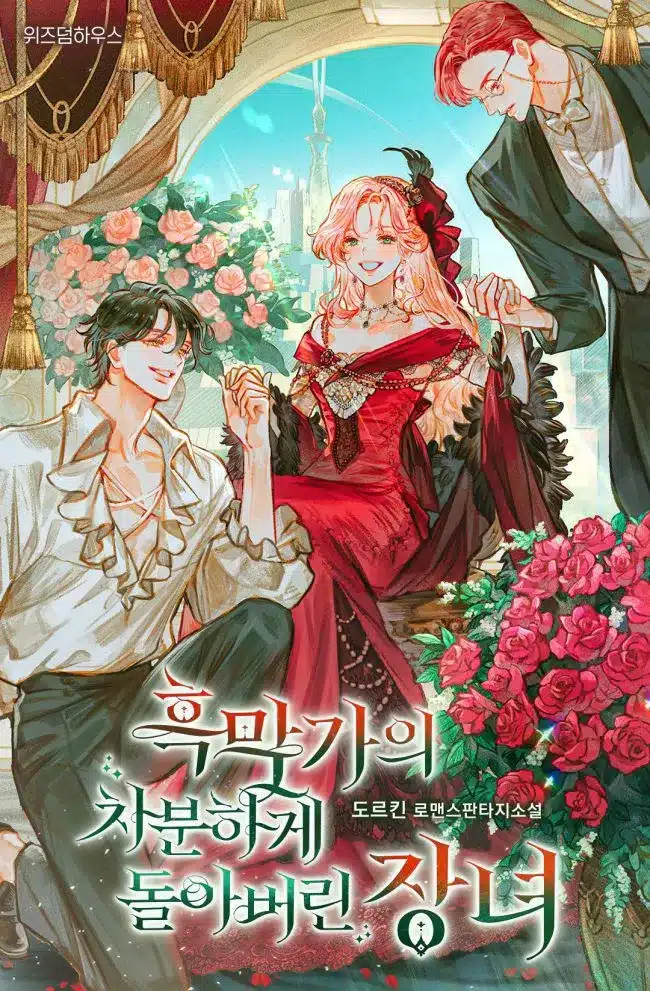Stirring Up a Storm by Force (3)
The biggest problem in the empire’s countryside is the poor peasants who can’t stand on their own.
These tenants farm borrowed land, but with the three-field system—dividing land into thirds, leaving one fallow—they can’t even use it all.
Back in the early-to-mid 19th century, when the mir was thriving, it was fine. Communities redistributed land periodically or built roads and hospitals the government wouldn’t.
But when the lowest social strata vanished and serfdom was abolished, the mir warped, and rural society turned to every-man-for-himself.
“Now, poor peasants don’t even get a shot to rise,” Witte said.
Landowners grabbed more land; the landless stayed trapped in serf-like lives. Capitalism’s claws reached the countryside.
“Over 15 million six-person peasant families earn less than half the average from pure labor income. Know what I’m getting at?” Witte asked.
They’re crawling at the empire’s bottom, groaning.
Stuck in the sticks with no way out, they can only look to the policymakers up high.
Their natural population growth is another issue. Thirty years ago, peasants numbered 50 million; now they’re over 80 million.
Fewer epidemics and wars mean the population graph’s spiking.
“But farmland per household dropped 46%—from five desyatinas to 2.7. Self-sufficient farmers? Even worse,” Witte noted.
Total farmland grew, but rich farmers own it.
Witte despises radical leftists—their ignorance and latent violence make him gag.
Yet, he empathizes with millions of workers and peasants. At Alkustov Agricultural Institute, his youth was spent studying their suffering.
“But you know what you’ve done?” Witte asked Veren.
“…I don’t follow,” Veren replied.
“You’ve dragged the empire, ready to move past the mir, back to the dark ages,” Witte snapped.
State-led farmland reclamation? Sure, the state leads, but companies will jump in.
They’ll build plantation farms, new mirs, turning poor peasants back into serfs.
The worst plan—empire capital, the spark for industry, sinking into farmland.
“I don’t know the Tsar’s exact plan, but it’d reduce poor peasants. If you hadn’t meddled,” Witte said.
With industrialization, peasants could become city workers.
Fewer peasants mean higher rural labor value and lower land prices.
City workers face tougher competition, but that’s solved by industrial and economic growth.
“I didn’t care what garbage ideologies the Duma spouts. I’m tasked with massive reforms; I had no time for that,” Witte said.
Truth be told, he wanted to crush revolutionaries and ideologues, like in the old Tsar’s days.
But Witte hid it. He believed progress and reform could naturally resolve such pressures.
He was so convinced that all problems hinged on development that pure rage now leaked out.
“I-I didn’t know—” Veren stammered.
“Ignorance excuses you? Right now, I want to sic the Okhrana on you—ugh, no. Then the Duma’d scream nonsense tomorrow,” Witte growled.
Isn’t it laughable? Just recently, he celebrated the gold standard’s success, and now this dumb proposal could ruin everything.
Even without the Tsar’s order, Witte would’ve led the charge against it, but he wasn’t sure he could stop it.
Because he wasn’t certain the Tsar would reject the Duma’s request.
The Tsar… he’s unreadable, even after a year.
Would he openly oppose his own Duma in just a year?
Or, like before, play ignorant and approve it from a distance?
Right or wrong, it’s now a political mess.
“I’m dying to know—what the hell were you thinking with this policy?” Witte demanded.
“I-I just threw together stuff I overheard while drunk…” Veren mumbled.
“Ha!” Witte scoffed.
Absurd—this guy, the lower house passing it, the upper house rubber-stamping it.
“Despite the political cost, I should end you here—” Witte started.
“Enough, Minister. Aren’t you getting too heated?” a voice interrupted.
Witte, about to deliver a verdict, froze. Veren knew that voice.
“Your Majesty,” they said.
“Now, now, let’s calm down,” Nikolai said.
Witte knew the Tsar was listening behind a wooden wall, but his calm was eerie.
“Your Majesty, he’s gone too far. We can’t let this slide,” Witte insisted.
“Kill the Duma’s rising star? Think of the fallout. Sure, the Okhrana could stage an accident,” Nikolai mused.
“Y-Your Majesty! I’m Veren Volkov, your chief aide who boldly went to the Far East on your word!” Veren pleaded.
“I know, Veren. Didn’t expect to meet like this,” Nikolai said.
“I swear I didn’t mean it! The Duma’s nuts—they don’t listen, just fight. I played along, agreed with them, and they voted for it!” Veren blurted.
Facing the Tsar, Veren felt death’s shadow, spewing whatever came to mind.
But Nikolai didn’t look angry—just appraising, like valuing an object.
“Hm, weird, right? Individual demagoguery working in Russia,” Nikolai said.
How many ideologues claimed their ideas were truth, spreading them to the masses?
In this era, pleasing ideas inevitably win, right or wrong.
To sway the Duma’s majority with no ideology, just demagoguery?
“Veren, I swore to crush whoever sent this garbage proposal. It looked like a deliberate sabotage,” Nikolai said.
“No! I’m just a guy from Khabarovsk—what do I know?” Veren protested.
“Exactly. That it wasn’t intentional makes it dumber. I’m still debating—keep you for use or cut you now,” Nikolai said.
I’ve never slipped as Tsar, I thought. Guess not.
Was I too arrogant, thinking I knew it all?
Nikolai felt stung, hit by his first real blunder.
Veren was clearly his mistake.
“Neglect—the worst error a powerful monarch can make,” Nikolai said.
“It’s not your fault, Your Majesty. It’s just an ignorant man with conviction,” Witte countered.
“Witte, I’m the one who gave that ignorant man power,” Nikolai replied.
He was still torn. Dismantling the Duma after a year lacks justification.
The people are disappointed, but they haven’t fully turned.
Harvest an unripe apple in a year, or endure and wait?
That’s what Nikolai pondered, eyeing Veren.
What if another Veren rises? What if the Duma keeps passing brainless proposals?
Nikolai expected the Democrat-Labor alliance, but votes from bourgeois Progressives and Conservatives? Unthinkable.
“Now what…” he muttered.
Veren’s potential and Duma influence were unknown.
Maybe his bubble bursts, revealing nothing.
“Alright, I’ve decided,” Nikolai said.
“Your Majesty, please!” Veren begged.
“I’ll let you live.”
The four-way faction split keeps creating majority risks.
“Not total forgiveness. I’ll tell Governor Sergei to keep you a few more years,” Nikolai said.
“What? My term—” Veren started.
“Why? You’re starting a party,” Nikolai cut in.
Make the Duma five factions. Grab some seats, and you’re at least a kingmaker.
“Just keep running your mouth. Fail, and the road back to the Far East gets dangerous,” Nikolai warned.
It’s the best option. Killing Veren now gains nothing.
“Here, Witte will water down your proposal for feasibility and send it back to the Duma,” Nikolai said.
“Pass it?” Veren asked.
“No, block it,” Nikolai replied.
All before the election.
“I’d rather no Duma nonsense hits my desk,” Nikolai added.
Block the proposal you proposed.
Veren felt the world spin.
“Your Majesty, did you see some hidden value in Veren?” Witte asked, leaving the building.
Even for an unpredictable Tsar, wasn’t this too opaque for the Finance Minister?
“Value? He’ll have to prove that,” Nikolai said.
“After the election, his influence could grow. Dashkov called him a demagogue, not even an intellectual,” Witte said.
“That’s why he’s useful,” Nikolai replied.
Because he sways Duma members.
“Liberals? Fallen nobles and scheming intellectuals chasing power. Labor? Potential traitors. Conservatives and Progressives? Just in it for themselves. Not one in the Duma sees the whole empire,” Nikolai said.
But Veren was different.
This guy just breathes demagoguery.
That’s why he’s useful—not tied to any group’s profit. He just thrives in that gladiator pit, landing in the papers.
“Still, smashing the Duma over one Veren feels wasteful. Protests and strikes have dropped, haven’t they?” Nikolai said.
People who’d scream at the Tsar or officials now swarm the Duma.
No better complaint desk for Nikolai.
Witte knew this but lingered on Nikolai’s other words.
“The Duma… was it meant to be crushed?” Witte asked.
“Hm? You didn’t know? Gotta squash it once. I can’t play kind Tsar forever,” Nikolai said.
Purge his own Duma. Did the members even suspect?
No way.
If they did, they wouldn’t act so recklessly. Veren wouldn’t exist.
“Look at your face—you really didn’t know. Our Finance Minister’s so pure,” Nikolai teased.
“…” Witte was speechless.
“Don’t glare. It’s your job anyway,” Nikolai said.
Purge the Duma? Witte, obsessed with reform, hadn’t considered it.
Witte couldn’t respond.
Nikolai dangled bait.
“How long you staying Finance Minister? There’s a next step, right?” he said.
“Next… you mean a prime minister system?” Witte asked.
“Gotta do it. How long can I block majorities?” Nikolai said.
Purge the Duma yourself, become prime minister, control it again.
The Tsar’s goal was clear.
Nikolai walked off lightly, hands behind his back, as if awaiting that moment.
Witte wished he didn’t know the plan.

















